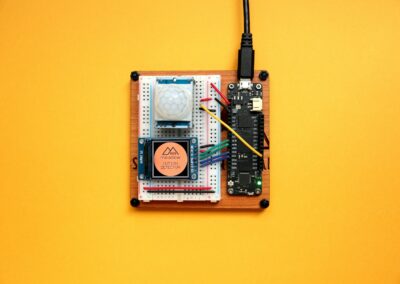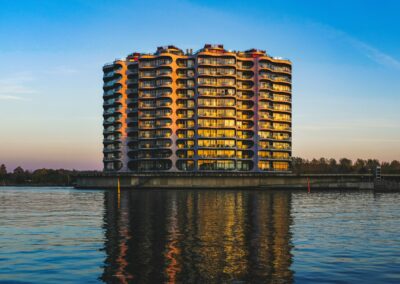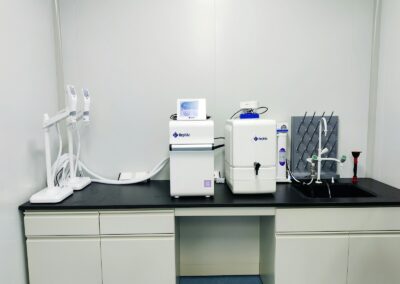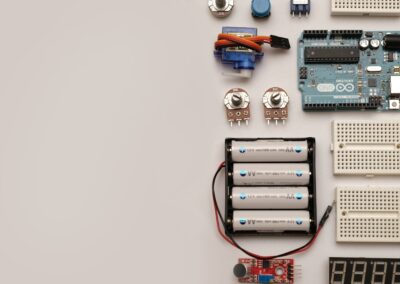Ensuring Safe and Sustainable Water Practices in Modern Cities
The Necessity of Real-Time Water Quality Monitoring
Real-time water quality monitoring is a critical innovation in ensuring that water sources remain free from contaminants and comply with environmental regulations. In urban environments like Riyadh and Dubai, where water resources are both valuable and vulnerable, the ability to monitor water quality in real time provides a significant advantage. By employing advanced sensors and IoT technologies, municipalities can continuously assess water conditions, detecting contaminants and irregularities as they occur.
This continuous monitoring is essential for maintaining public health and environmental sustainability. Traditional water testing methods, often conducted sporadically, can miss transient contamination events. In contrast, real-time systems provide instant alerts to any deviations from safe water quality standards, allowing for prompt action to address potential issues. For instance, if a contaminant is detected, immediate measures can be taken to mitigate risks, ensuring that water remains safe for consumption and use.
Furthermore, this approach helps urban planners and water management authorities in Saudi Arabia and the UAE to stay ahead of potential water quality issues. By integrating real-time data into their water management strategies, these cities can enhance their response times and resource allocation, ultimately leading to better public health outcomes and more efficient water use.
Leveraging Advanced Technologies for Enhanced Monitoring
The integration of Artificial Intelligence (AI) and Blockchain technologies with real-time water quality monitoring systems enhances their effectiveness and reliability. AI algorithms can analyze data from multiple sensors to identify patterns and predict potential contamination events before they escalate. For example, AI-driven models can detect subtle changes in water chemistry that might indicate the presence of harmful substances, allowing for early intervention and prevention.
Blockchain technology complements this by providing a secure and transparent record of all data collected. Each data point from the water quality monitoring systems is recorded on a decentralized ledger, ensuring data integrity and reducing the risk of tampering or errors. This transparency is crucial for compliance with environmental regulations, as it provides an auditable trail of water quality data that can be reviewed by regulatory bodies and stakeholders.
Moreover, AI and Blockchain together enable more efficient and accurate water quality management. AI’s predictive capabilities combined with Blockchain’s secure data management ensure that cities can not only respond to current water quality issues but also anticipate and mitigate future risks. This synergy between technologies supports the development of more resilient and sustainable water management systems in rapidly growing urban areas.
Challenges and Solutions in Implementing Real-Time Monitoring
Despite its advantages, implementing real-time water quality monitoring systems comes with its own set of challenges. One significant hurdle is the integration of new technologies with existing infrastructure. In cities like Dubai and Riyadh, upgrading traditional water management systems to incorporate real-time monitoring requires substantial investment and careful planning. Ensuring compatibility and minimizing disruptions during the transition are crucial for successful implementation.
Another challenge is managing the vast amount of data generated by real-time monitoring systems. While having access to continuous data is beneficial, it also necessitates robust data management and analysis capabilities. Developing effective data processing algorithms and storage solutions is essential for handling the large volumes of information and deriving actionable insights.
Addressing these challenges involves a combination of strategic planning, investment in technology, and ongoing management. By prioritizing these elements, cities can overcome the obstacles associated with real-time monitoring and fully realize its benefits. The result is a more proactive and effective approach to water quality management that enhances public health and environmental compliance.
In conclusion, real-time water quality monitoring is a transformative tool for detecting contaminants and ensuring adherence to environmental regulations. By integrating advanced technologies like AI and Blockchain, cities can improve their ability to manage water resources effectively. While there are challenges to address, the benefits of enhanced safety, sustainability, and regulatory compliance make real-time monitoring an essential component of modern water management strategies.
#RealTimeWaterQualityMonitoring, #WaterContaminationDetection, #EnvironmentalCompliance, #SaudiArabia, #UAETechnology, #RiyadhInnovation, #DubaiSustainability, #AIWaterMonitoring, #BlockchainTechnology, #SmartCities, #ChangeManagement























